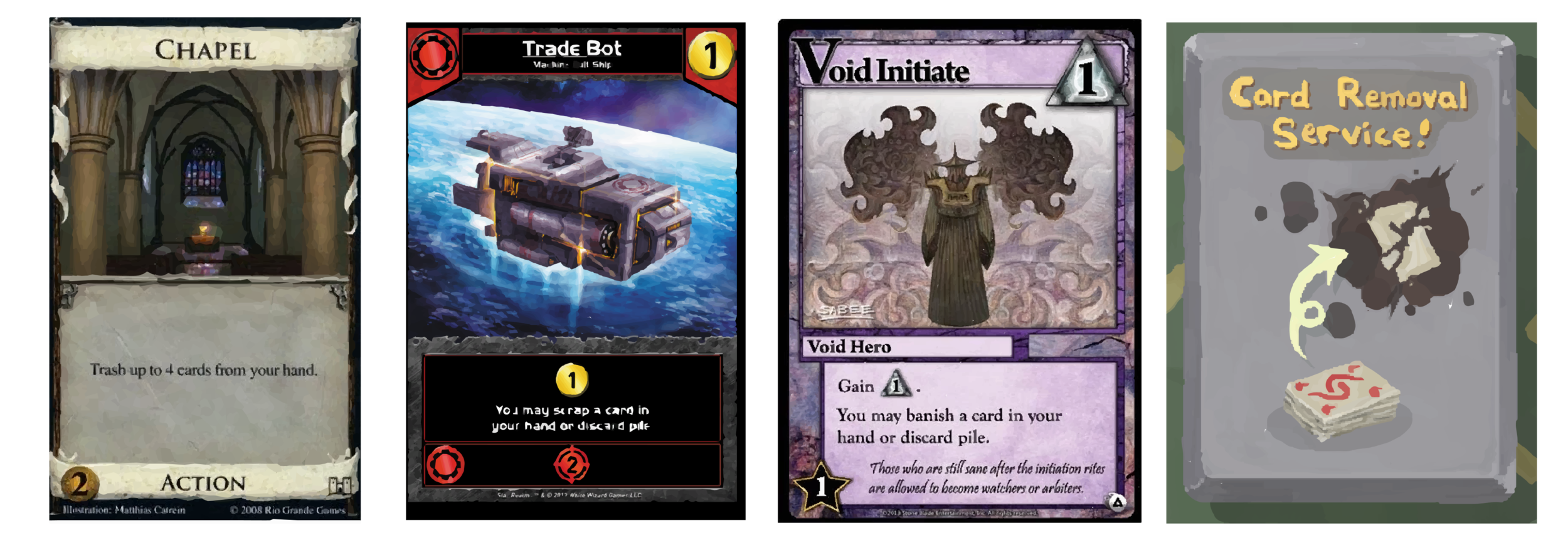So, the past year or so for me has been filled with tons and tons of great deckbuilders.
Dominion, Star Realms, Hero Realms, Ascension, Slay the Spire, even Dream Quest... they all became my children for a while. They're all still my lovely children. But let's get to the point:
The ability to remove poor draws from your deck is incredibly powerful. There's so many things we can learn from the power of deck thinning. I'm going to list out my chain-reaction of revelation.
You can design mechanics around modifying your constraints instead of gaining new affordances.
In deckbuilders, what you start with is almost never as good as what you can get later. It's mediocre on purpose.
Often, the stuff you start with bogs you down later on, signficantly.
Hey, this can be applied to all design.
When designing something, it's probably good practice to look back and double-check that the inspiration you started with is still relevant / isn't holding you back.
You can probably get a lot of good designs by using mediocre ideas as a framework, building off of that, and cutting the bad stuff once you don't need it anymore.
Points #1-3 are obvious, and point #6 is a bit of a reach, but #4-5 are some good solid lessons. We've heard this before -- design by cutting away the bad, instead of adding too much good. Minimalism. But scrapping mechanics made me wonder about this more than I had before:
What have I been considering the "core" of the things I make?
How often have I considered something "core" to a design, just because it was one of the first ideas I had for it?
And how many good opportunities have I missed by refusing to let it go?
I think everyone could benefit from asking the same questions of themselves. And not just game design, but visual design, writing, self-identity... I think this is a really important set of questions to ask about anything you do.


